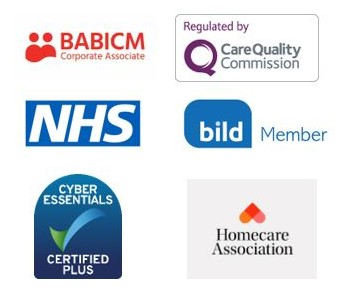Who is Nadia Hussain?
Nadia is an Occupational Therapist and Case Manager at Empowering U Case Management with over 6 years of clinical experience.
She is also a practicing Muslim and is observing Ramadan in 2024. We recently asked Nadia to speak about what Ramadan means for her, the advice she has for non-Muslim colleagues and clients, and advice for workplaces during the month.
What is Ramadan?
The ninth month of the Islamic calendar is one of the holiest events for Muslims around the world. The Islamic calendar follows the cycles of the Moon with Ramadan starting 11th March 2024, the first appearance of the new Moon, and ending 9th April 2024.
During this month, most Muslims observe a strict fast from dawn until sunset and those who do fast, are unable to eat or drink during daylight hours. Fasting allows Muslims to devote themselves to their faith and is thought to teach self-discipline.
What does the month of Ramadan mean to you?
The month of Ramadan for me is a month of spirituality and connecting with ourselves. The purpose of Ramadan is to give us one month in the year to reflect and think about those less unfortunate in the world who do not have the same privileges and luxuries that we take for granted every day.
We learn self-discipline by adhering to fasting times which then makes us feel mentally strong as the days go on. It’s also a month where families and communities come together to cook for one another, share food and eat together! Many people tend to say there’s just ‘something peaceful in the air’ during this month. Everything feels calm, joyful and rewarding. We have a celebration to mark the end of Ramadan and our achievements called ‘Eid-ul-fitr’ which can last up to 3 days of celebrating.
Do you have advice for colleagues and clients who are non-Muslim?
Be Mindful:
Muslims practice their religion all year round, however some people find Ramadan as a good opportunity to start practicing stronger with their prayers. It is important to make sure Muslims are able to take time out for daily prayers in their working day and they should be accommodated a quiet space/room to pray if they work in an office.
Also, people with health issues, young children, pregnant women and breastfeeding mothers are usually exempt, but it is up to the individual if they choose to fast. While some may not be fasting, they may be observing other spiritual aspects of Ramadan, such as prayers and giving to charity.
Sometimes people feel the need to apologise if they’re eating in front of someone fasting. I know it comes from a place of wanting to be respectful but when we are fasting, we are not usually phased by that as we build a lot of self-discipline and resilience up!
What role can a case manager play when a client is fasting?
- Start off by wishing them ‘Ramadan Kareem’
- Be mindful when scheduling any meetings in case they clash with prayer times or the time of breaking their fast.
- Ask them if they require any support
How can an employer support Muslim employees who are fasting?
Ask Questions:
Muslims are happy to discuss and explain their faith especially Ramadan as it is such an important month for them. It is a positive thing to increase our knowledge of different faiths and backgrounds so don’t be shy to ask questions.
Flexible Working:
Fasting starts from sunrise to sunset which means we wake up quite early just before sunrise to have something to eat (suhoor) and then we do not eat until sunset (iftar). Therefore, people might be more tired than usual in the day without food and drink in fasting hours and may need flexible working hours. For example, they may benefit from moving their shift hours temporarily to 10-6pm as opposed to 9-5pm.



